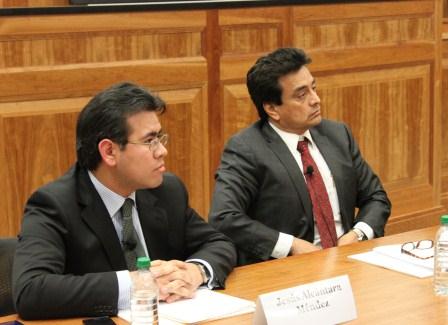Mexico

Richard Hutchison, Regional Research Advisor
In a breakout session of the 19th annual International Law and Religion Symposium, Jesus Alcantara Mendez, Javier Saldana Serrano, and Maximo Moscoso Pintado each presented an analysis of issues involving religious liberties in Mexico.
Maximo Moscos Pintado, the Religious Affairs Coordinator of the State of Tabasco, Secretaria de Gobernacion, presented an historical overview of religious liberties in Mexico. Starting with the original natives found in Mexico when the Spanish first arrived, Pintado traced the development of religious liberties until the present day. He highlighted the significant changes started under the leadership of Benito Juarez.
Jesús Alcantara Méndez, Religious Affairs Counsel Secretaria de Gobernacion, discussed the current state of Religious liberties in Mexico. He discussed the affects of the 1948 International Conversation of Human Rights treaty on the present status of Mexico law. He emphasized the provisions of Mexican religious law which provide for a separation of Church and State, provide that the exercise of religion cannot interfere with the political process in Mexico. For example, religious leaders are forbidden to participate in political affairs.
Javier Saldana Serrano, Professor of Law, Autonomous University of Mexico concluded the discussion with an in-depth analysis of Articles 24 and 40 of the Mexican Constitution. These Articles are the source of religious liberty in Mexico. He discussed the questions and potential effects of recent changes, and proposed changes to the language of Article 24. He pointed out changes to the Article include language protecting ethical convictions. He explored the possibility that the language is not merely an explanation of religious liberty, but creates a whole new class of protected rights not necessarily associated with the traditional understand of religion liberty.